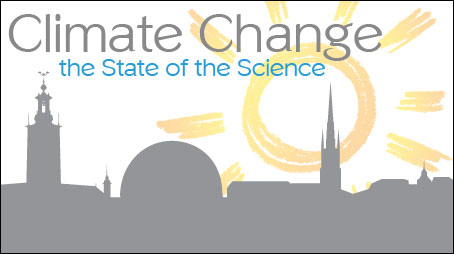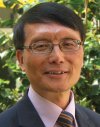| SEARCH |
-

Nov 17, 2015
Reflections on a three-decade legacy
The International Geosphere-Biosphere Programme (IGBP) will come to a close at t...
-
Nov 17, 2015
Use of and access to content on this website
Text and images produced by IGBP in house are free to use with appropriate credi...
-
Nov 12, 2015
Bella Gaia performance and panel discussion to mark IGBP's closure
A musical performance by Bella Gaia will celebrate the achievements and legacy o...
-

Towards Future Earth:
evolution or revolution?
During its three decades of existence, the International Geosphere-Biosphere Pro...
-
A personal note on IGBP and the social sciences
Humans are an integral component of the Earth system as conceptualised by IGBP. João Morais recalls key milestones in IGBP’s engagement with the social sciences and offers some words of advice for Future Earth.
-
IGBP and Earth observation:
a co-evolution
The iconic images of Earth beamed back by the earliest spacecraft helped to galvanise interest in our planet’s environment. The subsequent evolution and development of satellites for Earth observation has been intricately linked with that of IGBP and other global-change research programmes, write Jack Kaye and Cat Downy .
-
Deltas at risk
Around 500 million people worldwide live on deltas, but many of the world's deltas are sinking due ...
-
Climate change: the state of the science
A new data visualization released on the first day of the plenary negotiations at the UNFCCC’s clima...
-
Climate Change:
the State of the Science
Videos now online from the Stockholm public forum to mark the launch of the IPCC's climate report, 2...

Speakers
Thomas Stocker, University of Bern, Switzerland
Thomas Stocker was elected Co-Chair of Working Group I "The Physical Science Basis" of UN Intergovernmental Panel on Climate Change in 2008. A climate physicist , he has held research positions at University College London, McGill University (Montreal), Columbia University (New York) and University of Hawai'i (Honolulu). Since 1993 he has been Professor of Climate and Environmental Physics at the University of Bern in Switzerland. His research encompasses the development of climate models of intermediate complexity, modelling past and future climate change, and the reconstruction of greenhouse gas concentrations based on ice cores from Greenland and Antarctica. Thomas Stocker has authored or co-authored more than 180 peer-reviewed scientific papers in the area of climate dynamics and paleoclimate modeling and reconstruction.
Qin Dahe
Dr. Dahe Qin is Co-Chair of Working Group I "The Physical Science Basis" of the UN Intergovernmental Panel on Climate Change and former Administrator of the China Meteorological Administration. He is a glaciologist and climatologist specializing in the study of physical processes related to the Antarctic ice sheet and snow. He is an expert on paleontological records of climate and environment and the founder of the State Key Laboratory on Cryospheric Science in China. Dr. Qin has published more than 300 scientific publications.
Hans Rosling
Hans Rosling is professor of International Health at Karolinska Institutet, the medical university in Stockholm, Sweden. He co-founded Gapminder Foundation (www.gapminder.org). Gapminder promotes a fact-based worldview. Using animations of global trends, Hans Rosling lectures about past and contemporary economic, social and environmental changes in the world. Professor Rosling says, “So far, all progress towards health and wealth has been achieved at the price of increased CO2 emission that drives the imminent climate crisis.” He has been adviser to WHO and UNICEF and is a member of the International Group of the Swedish Academy of Science and of the Global Agenda Network of the World Economic Forum in Switzerland.
Johan Kuylenstierna
Johan Kuylenstierna is Executive Director of the Stockholm Environment Institute (SEI). Johan has previously had positions with the United Nations (UNDESA at the UN headquarters in New York, WMO in Geneva and FAO in Rome) and has worked many years at the Stockholm International Water Institute. He has experience as a consultant focusing on sustainability issues and corporate core value processes within the private and public sector. His academic background is Earth Sciences and his research focused on palaeoclimatology in the polar regions. He currently holds an adjunct professorship in international water resources at the Stockholm University.
Deliang Chen
Deliang Chen is professor of Physical Meteorology at University of Gothenburg, Sweden and a lead author on IPCC WGI. He is a climate researcher and has made important contributions to the understanding of regional climate changes in Sweden and China. From 2009 to 2012, Professor Chen was Executive Director of the International Council for Science (ICSU). Before joining ICSU, he was appointed August Röhss Chair in Physical Geography at the University of Gothenburg. Previous appointments include Director of the Gothenburg Atmospheric Science Centre and Science Director of the Beijing Climate Center which also serves as the National Climate Center of China. He is an elected member of the Royal Swedish Academy of Sciences and has served on numerous international and national committees and boards.
Markku Rummukainen
Markku Rummukainen is professor in Climatology at the Centre for Environmental and Climate research (CEC) at Lund University, Sweden, and Climate Advisor at the Swedish Meteorological and Hydrological Institute (SMHI). He is a lead author on IPCC WGI. His early research dealt with stratospheric ozone in the Arctic region and atmospheric chemistry. For the past 15 years, his research has focused on climate including regional climate modeling, analysis and climate scenarios. He has led major Swedish climate research programmes such as as SWECLIM, Mistra-SWECIA and MERGE on advanced climate models and climate adaptation, and participated in major European Union funded climate research projects. As a climate advisor, he provides expertise on many national committees and other settings as well as to the Swedish delegation to the UN climate negotiations.
Sybil Seitzinger
Sybil Seitzinger is the Executive Director of the International Geosphere-Biosphere Programme. Dr Seitzinger is a contributing author on the IPCC Working Group II Fifth Assessment Report and her areas of expertise include biogeochemistry, nutrient dynamics, and land/atmosphere/ocean interactions. She has been Director of the Rutgers/NOAA Cooperative Marine Education and Research Program, Rutgers University and has been a visiting Professor at Rutgers University, Institute of Marine and Coastal Sciences since 1994. She received her Ph.D. from the University of Rhode Island School of Oceanography, and then worked as Senior Scientist at the Academy of Natural Sciences of Philadelphia. In 2011, Seitzinger was elected a member of the American Academy of Arts and Sciences.
IGBP closed at the end of 2015. This website is no longer updated.
-

Global Change Magazine No. 84
This final issue of the magazine takes stock of IGBP’s scientific and institutional accomplishments as well as its contributions to policy and capacity building. It features interviews of several past...
-

Global Change Magazine No. 83
This issue features a special section on carbon. You can read about peak greenhouse-gas emissions in China, the mitigation of black carbon emissions and the effect of the 2010-2011 La Niña event on gl...
-
INTERGOVERNMENTAL PANEL ON CLIMATE CHANGE:
How green is my future?
UN panel foresees big growth in renewable energy, but policies will dictate just how big.
-
UK:
'The Anthropocene: a new epoch of geological time?'
Royal Society, Philosphical Transactions A



























